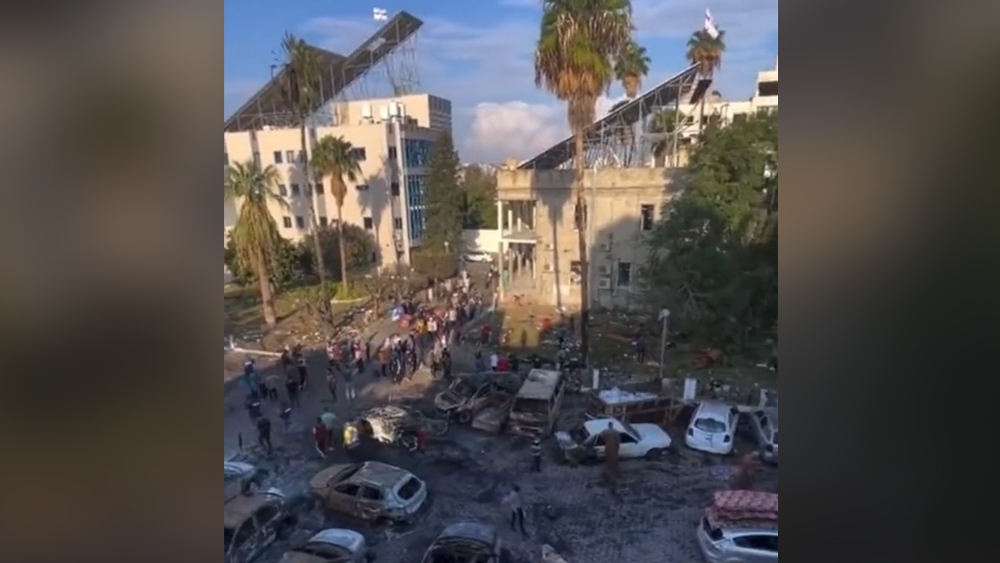IRON WALL or IRON FIST? Israel’s latest West Bank operation raises questions about “counterterrorism” tactics
- Israel launched a new military operation called “Iron Wall” in the Palestinian city of Jenin, aiming to “eradicate terrorism” in the region.
- The operation began just days after a ceasefire agreement with Hamas in Gaza, raising concerns about its timing and potential impact on regional stability.
- Israeli forces conducted the operation alongside the Israeli Security Agency and Israel Border Police, resulting in at least eight Palestinian deaths and 35 injuries.
- Palestinian leaders and human rights groups condemned the operation, arguing that it is exacerbating violence rather than curbing it and constitutes collective punishment.
- The operation is part of a broader pattern of conflict in the region, with critics arguing that Israel’s military tactics often result in disproportionate civilian casualties and further radicalize Palestinian communities.
In the early hours of Tuesday, Jan. 21, Israel launched a new military operation in the West Bank, targeting the Palestinian city of Jenin. Dubbed “Iron Wall,” the campaign was announced by Prime Minister Benjamin Netanyahu as a “large-scale and significant” effort to “eradicate terrorism” in the region. However, the operation, which began just days after a ceasefire agreement with Hamas in Gaza, has sparked outrage and condemnation from Palestinian leaders and human rights groups, who argue that Israel’s tactics are exacerbating violence rather than curbing it.
A ceasefire broken?
The timing of the operation has raised eyebrows. Just days prior, Israel and Hamas had reached a fragile ceasefire agreement, ending 15 months of intense conflict in Gaza. The deal included provisions for prisoner swaps and the withdrawal of Israeli troops from the Gaza Strip. Yet, the ink on the agreement had barely dried when Netanyahu announced the Jenin operation, signaling a return to military escalation.
“This is another step towards achieving the goal we have set – strengthening security in Judea and Samaria,” Netanyahu said in a statement, using Israel’s administrative name for the West Bank. He framed the operation as part of a broader strategy to target the “Iranian axis wherever it sends its arms,” accusing Tehran of funding and arming militant groups in the region.
The Israel Defense Forces (IDF) confirmed the operation, stating it was conducted alongside the Israeli Security Agency (ISA) and Israel Border Police. Footage circulating online showed Israeli military vehicles entering Jenin, accompanied by reports of intensive drone strikes. According to local health authorities, at least eight Palestinians were killed and 35 others were wounded in the initial hours of the raid.
Palestinian response: Escalation and condemnation
The Palestinian Authority (PA) swiftly condemned the operation, with Prime Minister Mohammed Mustafa calling it the latest in a series of “aggressive Israeli measures” against Palestinians. Hamas and Palestinian Islamic Jihad, both designated as terrorist organizations by Israel and much of the West, called for an escalation of attacks against Israel in response to the Jenin operation.
A spokesperson for the Palestinian security forces told AFP News Agency that Israeli troops had opened fire on civilians and security personnel, leading to the high number of casualties. “This is not counterterrorism; this is collective punishment,” the spokesperson said.
The operation also comes amid shifting U.S. policy in the region. Hours before the raid, former President Donald Trump rescinded Biden-era executive orders that had authorized sanctions against individuals undermining peace in the West Bank, primarily targeting Israeli settlers. Critics argue that this move emboldened Israel to pursue aggressive military actions without fear of international repercussions.
A broader context of conflict
The Jenin operation is not an isolated incident but part of a broader pattern of violence that has plagued the region for decades. The West Bank, occupied by Israel since 1967, has long been a flashpoint for clashes between Israeli forces and Palestinian militants. Jenin, in particular, has been a hub for armed resistance, with Israeli officials accusing the city of harboring militant groups funded by Iran.
The recent conflict in Gaza, which began in October 2023 after Hamas launched a surprise attack on southern Israel, has further destabilized the region. The initial Hamas attack killed approximately 1,100 people and resulted in over 200 hostages being taken. Israel’s military response has been devastating, with local health authorities reporting more than 46,000 Palestinian deaths and widespread destruction in Gaza.
The hostilities have also spilled over into neighboring Lebanon, where clashes between Israel and Hezbollah have intensified, and into Iran, with several long-range strikes exchanged between the two nations.
A question of tactics
While Israel frames its actions as necessary for national security, critics argue that its military operations often result in disproportionate civilian casualties and further radicalize Palestinian communities. The Jenin operation, with its high death toll and reports of civilian injuries, has only fueled these criticisms.
“How can we talk about peace when innocent people are being killed in their homes?” asked a Jenin resident in an interview with local media. “This is not security; this is terror.”
As the “Iron Wall” operation continues, the international community watches closely. Will Israel’s tactics achieve their stated goal of eradicating terrorism, or will they only deepen the cycle of violence and resentment? For now, the people of Jenin are left to pick up the pieces, caught in the crossfire of a conflict with no end in sight.
Sources include:
SHTFplan.com
Azerbaycan24.com
SAN.com
Read full article here


